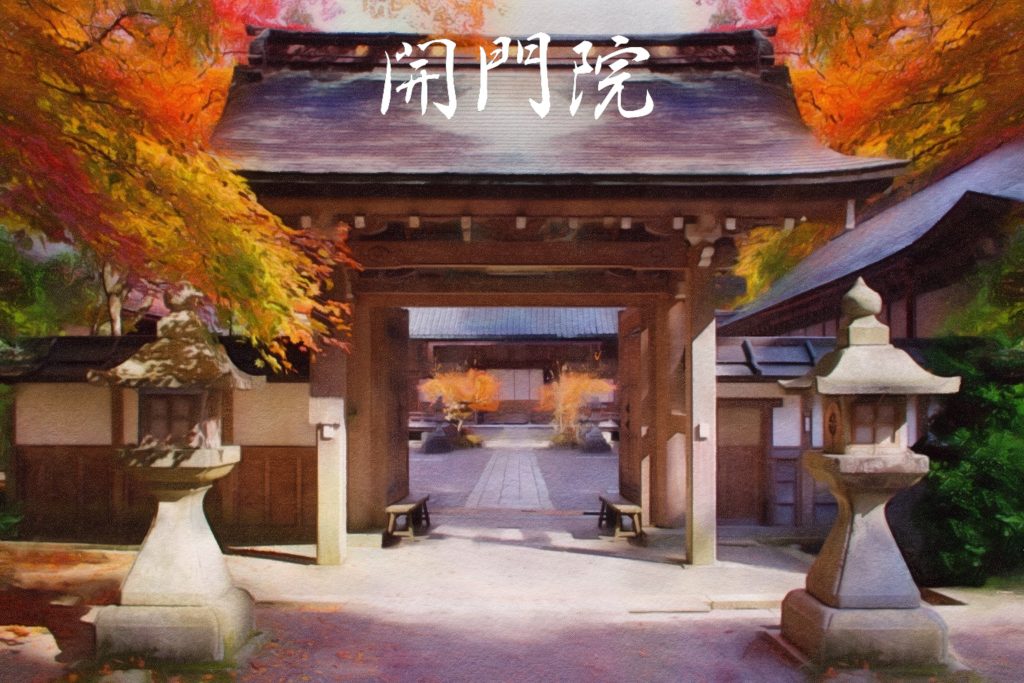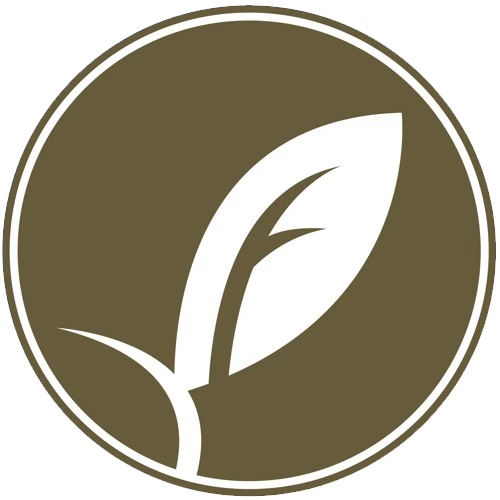
The Monastery of Open Doors
A non-residential path to Soto Zen ordination, the priesthood, and a role of service to others for dedicated, long-time Zen practitioners who live with challenges of health, disability, childcare and family responsibilities, economic hardship or equivalent life obstacles.
Today, as in centuries past, it is nearly impossible for individuals facing difficult life obstacles to be ordained and trained for the Buddhist priesthood. People in these circumstances often are unable to travel, or to take up residency in physically demanding training programs. We believe such conditions keep countless sincere, dedicated individuals who would make good Zen priests from having the opportunity to ordain because of their personal situation. In fact, the very challenges such people live with every day can serve the intentions of priest training, honing wisdom and compassion in Zen practice. Illness and other hardships may be life’s most powerful koan, and a hospital bed, wheelchair, or wherever one must be can be a monastery. Caring for others in a family coupled with right employment in the world, economic struggles, as well as roles of service in society aiding suffering sentient beings, can all be situations and places of dedicated practice.
The Monastery of Open Doors (a program of Treeleaf Zendo, a Soto Zen Buddhist Sangha) offers a welcoming environment for people who have:
- Long felt a calling to ordination as a Soto Zen Buddhist priest and a role of service to others;
- Generally 10 years or more of demonstrated, devoted, and consistent Zen practice as a lay person primarily in the Soto Zen Buddhist Tradition; and
- The willingness and dedication to undertake training as a novice Zen priest; but who have
- An inability to join in standard, residential priest-training programs at traditional monasteries or Zen centers because of poor health, disability or advanced age, economic hardship, family responsibilities, roles of service in the world aiding suffering sentient beings, or equivalent life roles and challenges that would prevent one from participating in such a residential program.
Treeleaf Zendo has long been an online practice community for Zen Buddhists who are unable to easily commute to a Zen Center, whether due to health concerns, living in remote areas, or because of childcare, work, and family needs. We provide Zazen sittings, retreats, discussion, interaction with a teacher, and all other activities of any strong Soto Zen Buddhist Sangha… and we do it all fully online. The Monastery of Open Doors continues this tradition with regard to Soto Zen Buddhist priest training for those who need. Our principal teacher is Jundo Cohen who continues the work of his own teacher, Gudō Nishijima Roshi (1919-2014), in breaking down the boundaries between lay practice and priesthood, and opening up Sōtō Zen practice and training to all those who seek the way with an open heart.
We believe the Buddha and many great Zen teachers of past ages would have gladly built bridges, using any means possible, to allow training for such sincere persons if resources, especially technological tools, had been available in ancient days. Thus, over the past decade, our Treeleaf Sangha has nurtured and opened our doors to individuals who–while living with the restrictions of advanced age, various illnesses that may bind them to their bed or a wheelchair, serious risks to health posed by strenuous physical exertion, the after-effects of chemotherapy or crippling injuries, as well as the need to nurse others who are sick or disabled–have been forced to remain close to their homes. We have opened our doors to individuals with a calling to train and minister to all suffering sentient beings while also maintaining their obligations to children and family, positively working in the world, bringing Buddhism out from monastery walls. We especially welcome individuals in medicine, mental healthcare, charitable and social engagement, the arts, education, the sciences and other societal roles aiding sentient beings, wishing to maintain such right work while training for priesthood. We have developed resources to support training priests across long distances and sustained their training over time.
We ask no money, realizing that so many cannot afford the cost and luxury of time needed for traditional training routes. We work intimately, using online communications to maintain face-to-face interaction and carefully supervised instruction. We believe that “leaving home” holds the wider meaning of “leaving behind” greed, anger, ignorance, the harmful emotions and attachments that fuel so much of this world, in order to find the “True Home” we all share. In such way, we find that Home that can never be left, take to the Way that cannot be taken.
Our priests come together daily with each other and the members of our Sangha. We have adapted Zen training and its requirements to suit the abilities of individuals with severe mobility and other restrictions. Duties of childcare, family and work in the world can unite with priestly training. The result of these efforts has been the cultivation of a group of priests who are now serving their communities, adapting Soto Zen traditions to their circumstances. They are people who otherwise would have found it impossible to train or serve as priests, but who now engage their personal experience of living with obstacles and responsibilities as a source of insight and strength, in order to serve those who are encountering their own hardships, difficult demands and suffering in life. We choose to view circumstances many would consider impediments as qualities that bring strength and compassion to practice.
If you, or someone you know, feels a calling to priesthood in the Soto Zen Buddhist tradition, but are prevented from pursuing this path for the reasons we have described, we invite you to our community at Treeleaf Zendo, and to apply to be considered for The Monastery of Open Doors program.
Contact us at: training@treeleaf.org
In making your application, please be aware of these important points:
- Training will be neither quick, nor hurried. Like training in any Soto Zen monastery, it is a rigorous, multi-year process, meant for truly dedicated individuals who consider the priesthood a lifetime path. No fast shortcut to credentialing as a priest should be expected. There are, in fact, no guarantees of completion or advancement offered at any stage, let alone eventual authorization as an independent priest or teacher. If, however, you are sincere in your efforts, trying to do what you can, and making a consistent effort over time, we will work with you to provide this training even amidst your other life responsibilities related to health, limitations on your physical or cognitive abilities, duties to care for others, your family, childcare, and the time constraints of your job.
- If this interests you, we ask that you complete the following application process, including written essays explaining in detail your prior history of Soto Zen and all other Buddhist practice, the nature of your calling to be a Soto Zen priest, and the obstacles you have faced in doing so through standard, residential programs. Recommendations must be provided with your application, and personal interviews will be conducted online. You must demonstrate that your interest in ordination is not primarily for your own reward, but to live in service to others, in line with our Bodhisattva vow to ‘save all sentient beings.’ You must also demonstrate evidence of the highest ethics. Please note that a past history of arrest, including even conviction and imprisonment, or of a period of substance abuse and addiction, are not necessarily a bar to ordination. This will depend on the circumstances, the nature of the offense or addiction, and clear evidence that the past has been left well behind.
- Only a few will be selected from those who apply to The Monastery of Open Doors. If you are selected, you will be asked to participate for the first one (1) year as a general, lay member of Treeleaf Sangha, during which you will study for and undertake Jukai (Lay Precepts). You will be asked to hand-sew a Rakusu and a full Kesa in Nyoho-e style during the year (although the sewing requirement will be excused for some on the basis of health limitations that prevent their doing so). During this first year, we expect you to be an active and positive member of our Sangha, joining in many of our online activities, and giving us an opportunity to get to know you while you get to know us. At the end of this first year, if the chemistry is right, you will be invited to ordain as a novice priest-in-training. Again, there is no guarantee that ordination will be offered, and it may not be, if either you or our teachers feel the fit is just not right.
- Following ordination, if it occurs, you will be a novice priest-in-training. This is not the same as being a full Soto Zen priest, and gives no authorization to teach on your own or to function independently as a Zen priest or teacher. It is merely an opportunity to train.
- Our Sangha believes in simple ceremony and ritual. Even so, we expect you to undertake, sincerely and energetically, what we do require, and to master your priestly skills well. If you live with physical limitations, we will adapt any ritual and practice to your physical needs, but expect you to exhibit seriousness and sincerity in what you can do. We ask our priests to learn extensively the traditions, doctrines, practices, and history of Soto Zen Buddhism in particular, and of Buddhism in general. Of course, we expect your enthusiastic participation in Zazen sitting. We have developed resources and techniques to allow teaching and training at a distance. It is our philosophy at Treeleaf Sangha that in this age, priest training, family and childcare responsibilities, work, and social duties must all go hand-in-hand, and that this can be accomplished without neglecting any part. However, there is no guarantee how long it may take to complete such a course, or even that it will ever be completed. This is the nature of training for Zen priesthood. The outcome depends on the energy, effort and sincerity—or lack thereof—that you bring to your training. You may be asked, or may yourself decide, to leave the program at any time. We will work with you to recognize and accommodate your other life responsibilities, believing that temple kitchen and family kitchen, sick bed or child’s nursery, office or farm field can all become places of practice and training, with right attitude.
- It is possible that after a period of time, perhaps 5 years, 10 years … it is impossible to say … your path will wind to an offer of Dharma transmission based on recognition of your true Zen Heart, at which point, you would be considered an independent priest and teacher, authorized to have students and to continue the Zen lineage in your own right. For some, this may never happen.
- All through your training in our Sangha, an attitude of dedicated and sincere commitment to serve others, and to aid all suffering sentient beings, must be exhibited.
Please note that there is no charge for this program, which is being provided freely as a service to the Zen community by Treeleaf Sangha and its teachers. No financial donation will be requested or required from participants.
The true ‘donation’ being asked of you is simply your energy, dedication to training, and focus on helping others.
We look forward to hearing from you, if you have such a calling.
